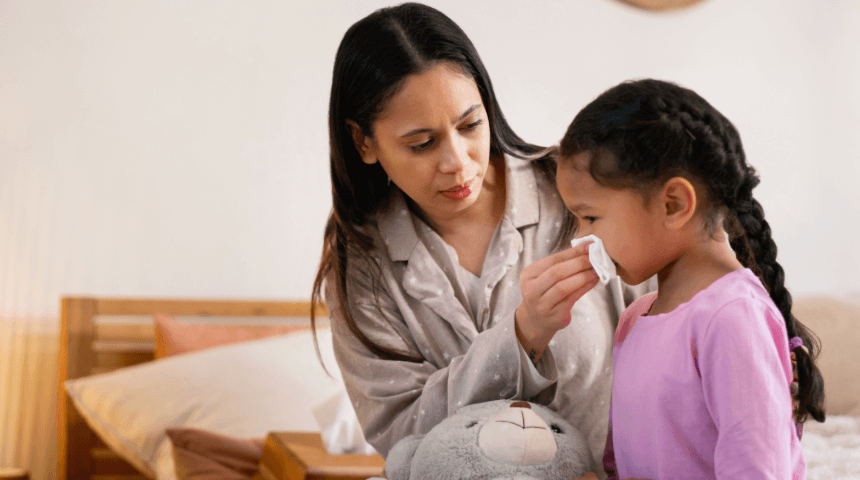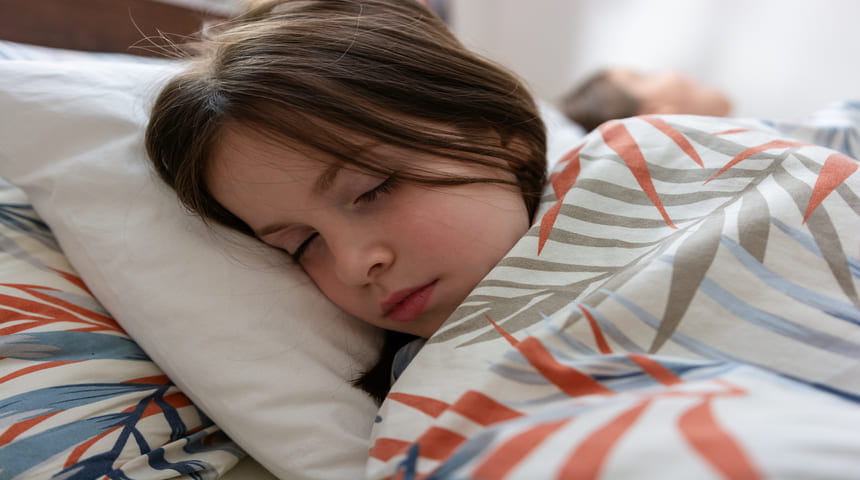What doctors know about COVID-19 is still emerging, but experts consider children with asthma to be at-risk for more serious illness if infected than children without asthma. To help protect them, ensure your child regularly uses their preventive asthma therapies — such as an inhaler — and work hard to reduce triggers like exposure to pollen and stress. Doing so lowers your child’s risk of serious infection from COVID-19.
Keeping up with regular check-ups throughout a pandemic is more crucial than ever — especially so for a child with asthma. Rest assured doctor’s offices are among the lowest-risk places to visit, as they are enacting prudent hygiene regimens. Virtual appointments also are available for families with concerns about being out of the home.
Reducing Asthma Flare-Ups
The weather we’re used to locally — hot, humid and often made worse by pollen — can trigger asthma. Whenever possible, your child should go outdoors when both temperatures and pollen counts are lower. Stress, which many people of all ages are struggling with, also can cause flare-ups, so do your best to help your child find healthy outlets for stress release.
Most importantly, unless your care team advises otherwise, keep giving your child their prescribed medications. You should:
-
Keep a minimum one-month supply of medicine (inhalers, nebulizers). Contact your insurance provider and pharmacy to order refills well in advance.
-
Make a daily medicine schedule and follow it.
-
Create an asthma action plan for your child and be certain they are familiar with it.
-
If your child uses an inhaler, make sure they are comfortable using it and, if necessary, ask your medical team to provide a refresher demonstration.
-
Daily activity is important and, when pollen counts are low and temperatures are not too high, children should keep fit, which will lower their risk for stress and flare-ups.
What Do I Do When My Child Is Sick?
If your child should become ill with asthma symptoms and fever, you should contact your doctor. Depending on what symptoms they have, your child may either be treated while at home or need to be examined, perhaps requiring a test such as a chest x-ray or checking for COVID-19. The most likely early helpful treatment for a child with asthma and COVID-19 (with symptoms) is a steroid medication.
Should My Child with Asthma Wear a Mask?
Masks are a significant preventive measure to help reduce the spread of COVID-19 and are most necessary when social distancing is difficult, according to the Centers for Disease Control and Prevention (CDC). All children should be taught how to socially distance properly, when to wear a mask and how to practice frequent handwashing.
However, if your child has asthma, they may need to be extra cautious while wearing face coverings during hot weather or when pollen is high. Because exercise is crucial to asthma patients and wearing a mask during physical activity such as running may make it harder to breathe, the Asthma and Allergy Foundation of America recommends that those with asthma seek out trails, parks and playing fields with few people, avoiding crowded outdoor activities that would require a mask.
Further adaptations for mask protocol include:
-
For younger children who may be unable to wear a mask properly, particularly for an extended time period, masks may be prioritized when it is difficult to maintain a six-foot distance from others, such as waiting in lines or at a bus stop.
-
Masks should not be worn when or where they can get wet, such as at the beach or the pool. A wet mask makes breathing difficult and is ineffective. Instead, swimmers should maintain physical distance from others when in the water.
Masks should not be worn by:
-
Children younger than two years old
-
Anyone who has trouble breathing
-
Anyone who is unconscious, incapacitated or otherwise unable to remove the mask without assistance
Are You Interested in Learning More?
Sign up for our e-newsletter for more tips and best practices from pediatricians.
Sign Up Here










